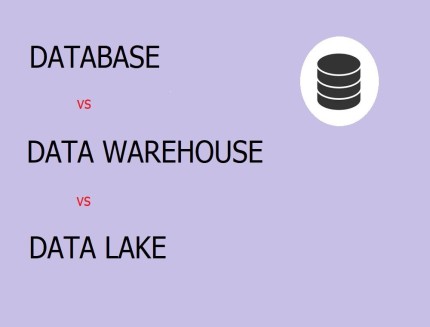
Main Differences Between Databases, Data Warehouse, and Data Lake
Before diving in to see the difference between a database, data warehouse, and data lake let's define what data is. Data is a collection of facts, observations, and measurements that represent text, numbers, images, maps, videos, documents, or audio recordings. Data can be divided into two broad categories, quantitative and qualitative.
Database
As the name suggests, it is a place or a base that holds an organized collection of data systematically. Mainly, it deals with transactional data, which means information that is captured or processed in a day-to-day use. For example, our credit card transactions, sales or purchase orders, and insurance claims are some of the real-world online transaction processing (OLTP). Databases can be small Excel spreadsheets to big data that hold the most recent day-to-day data for best performance. Database implements normalization rules to reduce data redundancy and improve data integrity.
Data Warehouses (DWH)
A data warehouse stores much amount of data than a database for business-oriented online analytical processing (OLAP) where a bulk of historical data is required, whereas a transactional database doesn’t lend itself to analytics.
The data warehouse can be built from operational databases, applications, and transactional systems. It typically renormalizes its data, prioritizing read operations overwrite (schema-on-write) and it is also subject-oriented, integrated, time-variant, and non-volatile.
It is used by analysts, data scientists, and other business users to perform descriptive, diagnostic, predictive, and prescriptive analytics to improve business quality.
Data lake
A data lake is built to store and process a large amount of structured, semi-structured, or non-structured data from sensors, apps, websites, or other data sources. It is schema-on-read, which means very flexible and easy to make changes. Data lake stores both current and historical information that can be used by data engineers, scientists, or other highly technical users for machine learning, deep analysis and discovery.
- Tag:


Write your comment